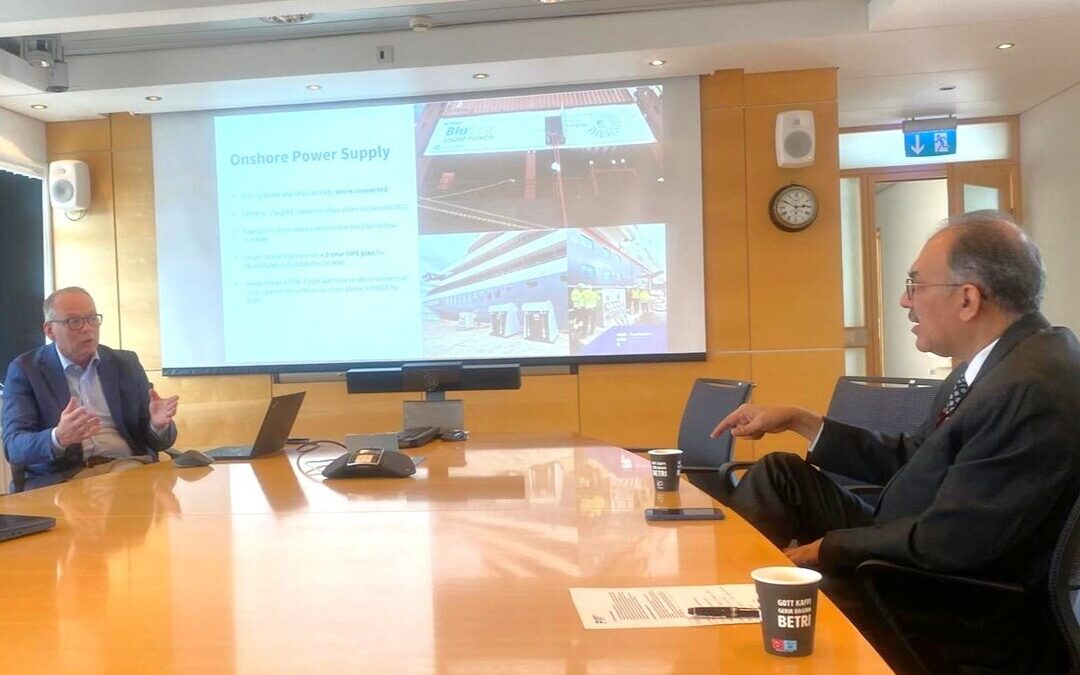India, Iceland Deepen Ties on Fisheries, Eye Zero-Waste Collaboration
India, Iceland to boost sustainable fisheries with zero-waste technologies, deep-sea fishing and aquaculture cluster development.
India and Iceland have agreed to step up cooperation in sustainable fisheries and aquaculture, with a focus on zero-waste technologies, innovation exchange and cluster-based development, officials said on Friday.
A three-day Indian delegation led by Abhilaksh Likhi, secretary in the Department of Fisheries under the Ministry of Fisheries, Animal Husbandry and Dairying, visited Reykjavík from Sept. 10-12 to build strategic partnerships in the blue economy.
On Sept. 11, Likhi held meetings with the Iceland Ocean Cluster, where discussions focused on developing fisheries and aquaculture clusters in India through zero-waste interventions.
Both sides explored investment opportunities for Icelandic seafood processors in India and examined ways to strengthen business-to-business ties.
The delegation emphasized innovation-driven cooperation in fish processing, value addition, traceability and certification to improve sustainability and competitiveness.
Iceland’s Zero-Waste Edge
Senior officials from India’s National Fisheries Development Board presented the government’s vision for aquaculture cluster development. Icelandic companies, including BRIM and Hampiðjan, along with the Iceland Ocean Cluster, outlined Iceland’s experience in zero-waste models and advanced processing technologies.
Prominent participants included Thor Sigfusson, founder and chairman of the Iceland Ocean Cluster, and Bala Kamallakharan, founder of Startup Iceland. India’s ambassador to Iceland, R. Ravindra, also joined the talks.
The delegation visited MATIS, a leading Icelandic food and biotech research firm, which highlighted its work in food safety, biotechnology and sustainable marine resource utilization.
Officials said the visit opened avenues for technology transfer and research collaboration to strengthen India’s fisheries value chain.
Ministerial Engagements and Expo Visit
On Sept. 10, the delegation attended the Icelandic Fishing Expo 2025 at Laugardalshöll in Reykjavík. Likhi met with Hanna Katrín Friðriksson, Iceland’s minister of industries, to review developments in fisheries and aquaculture and explore stronger institutional and commercial links.
Indian officials also met Icelandic fishing associations and entrepreneurs to study innovative technologies and best practices in sustainable fishing.
Both sides identified several areas for cooperation, including deep-sea fishing vessels with onboard processing, trans-shipment and value addition systems, along with stronger traceability and certification frameworks.
They also agreed to expand collaboration on vessel monitoring and surveillance technologies to improve regulatory oversight and resource management.
Training in deep-sea fishing technologies, trout farming in India’s hilly states, and specialized tuna fishing technologies in the Andaman & Nicobar and Lakshadweep islands were also highlighted as potential areas of joint work.
India’s Cluster-Based Model
India is promoting a cluster-based model under the Pradhan Mantri Matsya Sampada Yojana to drive competitiveness in fisheries and aquaculture.
So far, 34 clusters have been notified across the country, spanning sectors such as seaweed in Lakshadweep, ornamental fish in Tamil Nadu, tuna in the Andaman & Nicobar Islands and coldwater fisheries in Jammu and Kashmir.
Officials said the model aims to unite producers, processors, cooperatives, start-ups and exporters to cut costs, promote innovation and support sustainable practices.
Partnerships with countries such as Iceland, which has pioneered 100 percent fish utilization, are expected to complement these efforts.
The visit marks a new phase in Indo-Icelandic cooperation and is expected to catalyze research tie-ups, industrial partnerships and innovation-led growth in the fisheries and aquaculture sectors.
“Partnerships like these can accelerate innovation-led growth in fisheries while supporting sustainable livelihoods,” Likhi said after the meetings.
Also Read:
India Identifies 100 Climate-Resilient Fishing Villages to Bolster Blue Economy
Nirmal Menon
Related posts
Subscribe
Error: Contact form not found.


